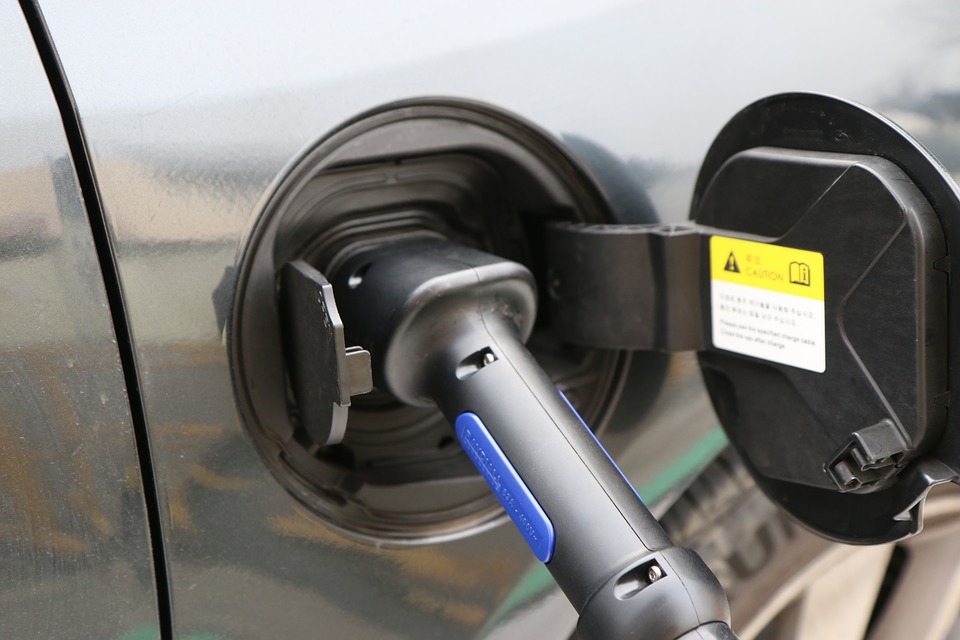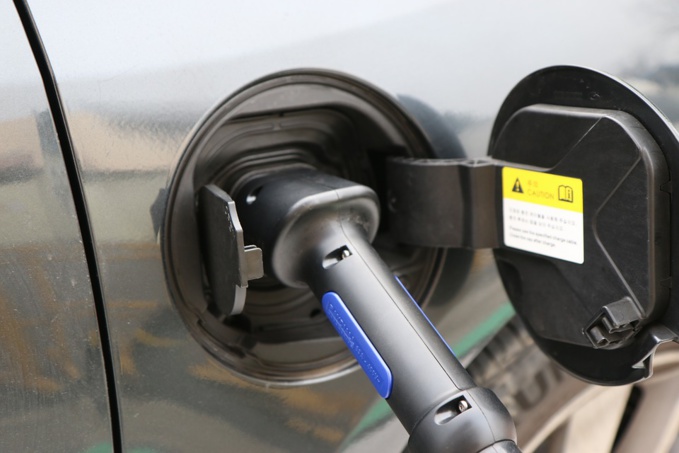It follows from the recent report of the International Energy Agency (IEA) that the global number of electric vehicles has reached 3.7 million. So far this is negligible compared to the global fleet of vehicles, which accounts for more than 1 billion cars. Nevertheless, according to the forecast of the IEA, by the year 2030 the number of electric vehicles in the world could amount to 125 million, and under favorable conditions - 220 million. At the same time, the share of cars with internal combustion engines will decrease, which is a direct threat to the revenues of oil companies. Therefore, the largest oil companies have already begun to prepare for the revolution in the transport world.
Recently, British BP invested $ 20 million into the Israeli startup StoreDot, which is developing batteries with ultra-fast recharging. In February, the British corporation poured $ 5 million in an American startup FreeWire, which plans to deploy a network of charging stations in the US and Europe. The amounts are modest for a giant like BP, but there have been many such examples over the past couple of years.
In October last year, Royal Dutch Shell (RDS) bought Europe's largest operator of electric vehicles charging stations NewMotion. The company has more than 30 thousand stations in Western Europe, as well as another 50 thousand partner points, which are accessible to customers of NewMotion. A month before the agreement with RDS, the company decided to cooperate with another oil and gas giant - French Total, whose customers got access to the Danish operator’s charging stations.
By the way, Total is developing its own car charging technology. For this purpose, in 2016 the corporation acquired more than 90% of Saft Groupe company’s shares for $ 1.1 billion.
In February, Saft formed an alliance with Siemens, Solvay and Manz to create a solid-state battery of a new generation for electric vehicles.
The alliance should help European producers to withstand competition from China and the US, which are confidently leading the battery market. Last week, Saft announced that it intends to invest € 200 million in development of new generation batteries.
On May 10, BP signed a memorandum of cooperation with the Shanghai investment fund NIO Capital, which deals with investments in high technology related to the automotive industry. This includes creation of networks of charging stations, new components, including batteries, and unmanned vehicles.
Self-driving cars are no less attractive for oil giants. For example, last year the Hungarian MOL Group launched its own taxi service. So far, the company's fleet has only 300 cars, but a third of them are electric cars.
The world's largest exporter of oil, Saudi Arabia, is also actively investing in electric vehicles and mobile taxi services. In 2016, the Public Investment Fund acquired a 5% stake in Uber for $ 3.5 billion. In addition, the PIF is one of the major investors in SoftBank Vision Fund, which actively invests in mobile taxi services around the world.
However, Saudi Arabia is still rather skeptical about the fact that carbon sources of energy will soon become unnecessary for anyone, and the world will switch to electric cars. "Many people mistakenly believe that electric cars will easily replace cars with internal combustion engines," said Saudi Aramco CEO Amin Nasser in February at the CERAWeek conference. According to him, this transition will take many decades.
In addition, electric vehicles obviously need electricity, and in most cases it is still generated from the same coal. This is especially true for such markets as India or China. Therefore, it is premature to talk about imminent transition of these countries to electric vehicles. This means that the demand for gasoline will keep growing, and oil companies should not worry about the lack of demand for oil.
source: ft.com
Recently, British BP invested $ 20 million into the Israeli startup StoreDot, which is developing batteries with ultra-fast recharging. In February, the British corporation poured $ 5 million in an American startup FreeWire, which plans to deploy a network of charging stations in the US and Europe. The amounts are modest for a giant like BP, but there have been many such examples over the past couple of years.
In October last year, Royal Dutch Shell (RDS) bought Europe's largest operator of electric vehicles charging stations NewMotion. The company has more than 30 thousand stations in Western Europe, as well as another 50 thousand partner points, which are accessible to customers of NewMotion. A month before the agreement with RDS, the company decided to cooperate with another oil and gas giant - French Total, whose customers got access to the Danish operator’s charging stations.
By the way, Total is developing its own car charging technology. For this purpose, in 2016 the corporation acquired more than 90% of Saft Groupe company’s shares for $ 1.1 billion.
In February, Saft formed an alliance with Siemens, Solvay and Manz to create a solid-state battery of a new generation for electric vehicles.
The alliance should help European producers to withstand competition from China and the US, which are confidently leading the battery market. Last week, Saft announced that it intends to invest € 200 million in development of new generation batteries.
On May 10, BP signed a memorandum of cooperation with the Shanghai investment fund NIO Capital, which deals with investments in high technology related to the automotive industry. This includes creation of networks of charging stations, new components, including batteries, and unmanned vehicles.
Self-driving cars are no less attractive for oil giants. For example, last year the Hungarian MOL Group launched its own taxi service. So far, the company's fleet has only 300 cars, but a third of them are electric cars.
The world's largest exporter of oil, Saudi Arabia, is also actively investing in electric vehicles and mobile taxi services. In 2016, the Public Investment Fund acquired a 5% stake in Uber for $ 3.5 billion. In addition, the PIF is one of the major investors in SoftBank Vision Fund, which actively invests in mobile taxi services around the world.
However, Saudi Arabia is still rather skeptical about the fact that carbon sources of energy will soon become unnecessary for anyone, and the world will switch to electric cars. "Many people mistakenly believe that electric cars will easily replace cars with internal combustion engines," said Saudi Aramco CEO Amin Nasser in February at the CERAWeek conference. According to him, this transition will take many decades.
In addition, electric vehicles obviously need electricity, and in most cases it is still generated from the same coal. This is especially true for such markets as India or China. Therefore, it is premature to talk about imminent transition of these countries to electric vehicles. This means that the demand for gasoline will keep growing, and oil companies should not worry about the lack of demand for oil.
source: ft.com



















